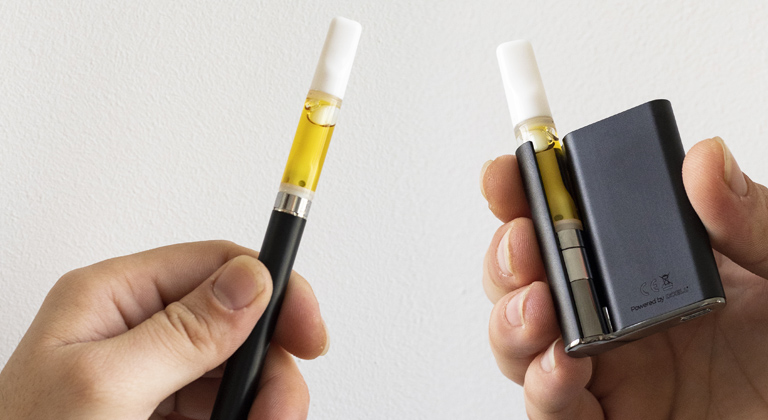New scientific research suggests that cannabis could be helpful in preventing certain diseases, such as type 2 diabetes, as well as in treating fibromyalgia, autism, skin disorders, and some neurodegenerative diseases.
Can cannabis help alleviate the symptoms of fibromyalgia and improve the mood of patients?
Fibromyalgia is a condition that causes chronic pain and often leads to symptoms of depression and anxiety. In a recent scientific study conducted between 2017 and 2021, researchers conducted a retrospective review of patients seeking treatment with medicinal cannabis for fibromyalgia.
In order to determine whether cannabis can enhance the quality of life for people suffering from fibromyalgia, researchers examined cases of patients at a specialized clinic for medicinal cannabis treatment.
The findings of this study indicate that:
- 30% of patients reported feeling less sad and melancholic.
- 22% of patients stated that the use of cannabis significantly reduced their anxiety.
- A remarkable 75% of patients recorded a reduction in fibromyalgia symptoms through cannabis treatment.
The study concludes that medicinal cannabis could be a potent tool for those experiencing fibromyalgia and associated symptoms such as depression and anxiety, though it suggests that further research in this field is necessary.
- Learn more about this scientific study here.

Cannabis in the treatment of autism spectrum disorder
In a study published in August 2023, researchers sought to explore the possibilities of cannabis treatment for improving the quality of life for patients with autism and their families.
The researchers delved into the improvements observed in the group of 20 patients who participated in the trial for a period ranging from 3 to 21 months. Patients were treated with individualized doses of “full-spectrum” cannabis extracts with different THC/CBD ratios. The findings, observed in the group of patients, whose members had different ages and degrees of severity of the disorder, were overwhelmingly positive:
- Parents of the patients reported significant improvements in all evaluated areas.
- Side effects were mild, and there were no negative interactions with other medications.
- As the treatment with cannabis extracts progressed, most patients were able to reduce or even discontinue other medications for this disorder, which is considered a very positive overall improvement.
- Of the analyzed group, 19 out of 20 patients experienced an increased quality of life, which in turn had a positive impact on their families.
- Noticeable improvements were observed in patients’ social interaction, cognition, and behavioral issues. Families reported a reduction in stressful situations and more moments of joy due to a decrease in aggression, the discomfort of patients in crowded places, and meltdowns.
- An improvement was also noted in non-central symptoms such as “eating non-edible objects,” a behavior known as “pica,” which 40% of the trial group patients experienced. Traditional medication for autism has low effectiveness in addressing “pica,” and surprisingly, cannabis treatment was very effective in this regard, marking an innovative discovery in the treatment of Autism Spectrum Disorder (ASD).
Learn more about this scientific study here.

Could Cannabis Reduce the Risk of Type 2 Diabetes?
Recent studies have explored whether the use of cannabis could actually reduce the risk of developing Type 2 Diabetes. Researchers examined various studies to see if there was a relationship between cannabis use and T2D, including analyzing data from randomized controlled trials, cohort studies, and case-control studies.
A meta-analysis of seven studies, including 11 surveys and four cohorts, found something intriguing: people who used cannabis had a significantly lower risk of developing Type 2 Diabetes compared to those who did not. The odds were nearly halved!
What does this mean? Apparently, this study suggests that cannabis could have a protective effect against Type 2 Diabetes. However, researchers point out that further research is needed on the topic to make conclusive claims.
While the connection between cannabis and Type 2 Diabetes seems promising, it still requires more investigation to establish a solid foundation.
- Learn more about this scientific study here.
CBD, a promising tool for skin issues
In a study published in July 2023, a group of researchers shed light on the potential of CBD to treat skin problems, especially in cases where conventional treatments have unwanted side effects or limited efficacy.
Chronic skin diseases like psoriasis and atopic dermatitis can be a real nightmare. According to this study, CBD could offer a glimmer of hope for people suffering from these conditions, making them more manageable.
Apparently, the beneficial properties of CBD for the skin are not limited to a single use, and we could say that this cannabinoid is like a Swiss army knife for skincare. Not only can it target specific skin issues, but it’s also multifunctional.
However, the authors add that more research is needed to establish its use in treating these conditions, as well as to explore new applications and address the safety of topical CBD.
- Learn more about this study here.

Cannabis and Alzheimer’s
Alzheimer’s disease remains a global medical challenge, especially in aging populations. Although there are treatments for this neurodegenerative disease, they mostly provide temporary relief of symptoms without addressing the real cause of the illness. But what role could cannabis play in this fight?
Cannabis has been known for its psychoactive properties for centuries; however, beyond its recreational use, researchers are exploring its potential in the treatment of neurodegenerative disorders such as Alzheimer’s.
A recent study published in Phytomedicine delves into the world of cannabis and its ability to protect brain cells. This approach is giving hope to those battling dementia and Alzheimer’s.
Learn more about this study here.
Cannabinoids in the Fight Against Neurodegenerative Diseases
Cannabinoids are at the center of this research, as these compounds have shown their ability to interact with the endocannabinoid system, a complex cell signaling network associated with memory and inflammation.
Current treatments for Alzheimer’s are limited in their effectiveness. They help control symptoms but do not stop the progression of the disease. This is where cannabis comes into play, offering a different approach to addressing this devastating illness, thanks to its neuroprotective potential.
Therefore, this study has focused on the neuroprotective potential of cannabinoids; they have proven to be a promising tool in preclinical studies, as they could improve processes such as memory, mood, and inflammation.
Although this study could open a path of hope, more research is needed; clinical trials and comprehensive tests are required to validate the safety and effectiveness of cannabis-based treatments. Additionally, aspects such as dosage and long-term effects must be carefully evaluated.

Cannabis and Brain Tumors: New Hopes in Research
In 2021, Professor Susan Short led pioneering research on the use of cannabinoids, such as THC and CBD, along with chemotherapy, to treat Glioblastoma, a highly aggressive type of brain tumor. The results of Phase I were promising: patients tolerated the treatment well, and a year later, the group treated with cannabinoids had higher survival rates than the placebo group.
Now, Phase II of the study is underway, with over 230 patients with glioblastoma, one of the most challenging brain cancers due to its recurrence, being recruited. This broader study is expected to provide more evidence on whether cannabinoids can help extend the lives of people with this type of brain tumor.
It is important to note that, if the results are positive, cannabinoids will not replace current treatment, such as chemotherapy, but will be added as a complement. This could mark a new path in the research and treatment of this type of cancer.
The trial will last three years, so it will take time before definitive results are obtained. However, if this treatment proves successful, it could open the door to a new option for patients worldwide. Research on the potential medical benefits of cannabinoids has increased considerably in recent years, and this study could be a significant step not only in the treatment of glioblastoma but perhaps other diseases.
This research signifies a shift in the direction of cancer treatment with cannabinoids, as currently, these compounds are only used to alleviate the side effects of chemotherapy, such as nausea. Therefore, if the results of this second phase of the study are favorable, it could completely change the landscape, offering new hope to those battling this disease.
Cali Terpenes









